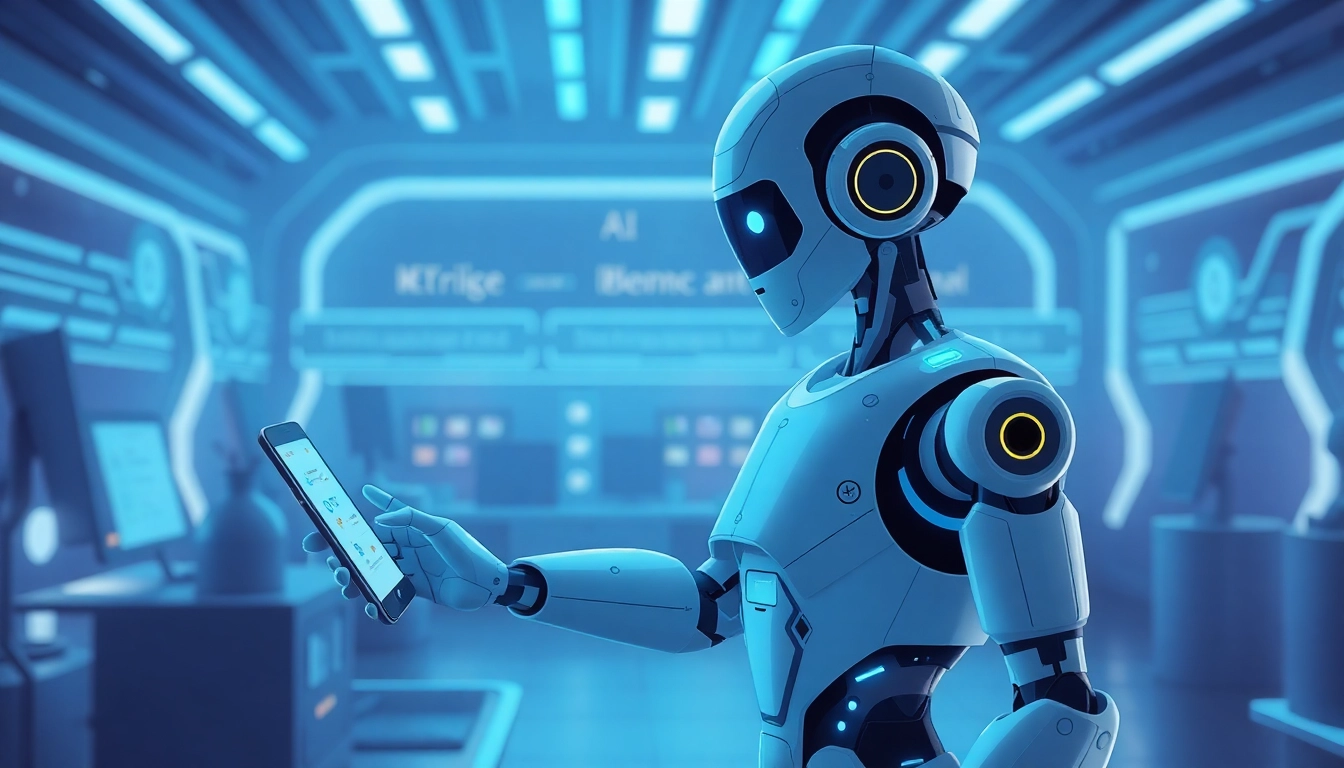Introduction to Agentic Human AI
The concept of Agentic Human AI represents a significant paradigm shift in the field of artificial intelligence. It captures the essence of a new wave of AI systems capable of performing tasks autonomously, utilizing sophisticated decision-making processes akin to human reasoning. The emerging trend of agentic AI systems not only enhances automation but also redefines the ways in which humans and machines collaborate, leading us into an era of unprecedented innovation across various sectors.
Defining Agentic Human AI
Agentic Human AI can be defined as artificial intelligence systems designed to operate autonomously, capable of taking actions and making decisions to achieve specific goals with minimal human intervention. Unlike traditional AI, which typically requires constant human oversight and input, agentic AI utilizes advanced algorithms and learning mechanisms to enhance its decision-making capabilities over time. This autonomy allows it to adapt to dynamic environments and improve its performance based on new data and experiences.
Historical Context and Evolution
To understand the rise of agentic AI, it is essential to explore its historical development. Initially, AI systems were rule-based, programmed to respond to specific inputs with predetermined outputs. As technology progressed, machine learning emerged, enabling systems to learn from data rather than relying solely on coded instructions. The introduction of deep learning further revolutionized the field, allowing AI to analyze vast amounts of information and identify patterns that humans could miss.
In recent years, the concept of agentic AI has gained traction, fueled by advancements in computational power, data availability, and algorithmic design. This evolution reflects a growing recognition of the need for AI systems that can function more like humans in their ability to reason, learn, and adapt. Consequently, agentic human AI has begun to play a pivotal role in various industries, marking a shift towards more sophisticated and autonomous technology.
Comparison with Traditional AI Models
When contrasting agentic AI with traditional AI models, several key differences emerge. Traditional AI systems often follow a linear programming approach, where the algorithms dictate a fixed sequence of actions based on predefined rules. This model is effective in narrow tasks but lacks flexibility. In contrast, agentic AI operates on a probabilistic model that allows for multiple pathways in decision-making, enabling it to react and adapt to changing circumstances, much like a human would.
Furthermore, agentic AI systems are equipped with self-learning capabilities, continually improving their performance through data input and prior experiences. This contrasts with traditional models, which require regular manual updates and reprogramming. As a result, agentic human AI systems possess the potential to revolutionize industries by driving efficiency, innovation, and responsiveness to market dynamics.
Key Features of Agentic Human AI
Autonomy and Decision-Making
One of the most distinctive features of agentic human AI is its inherent autonomy in making decisions. These systems are equipped with advanced reasoning capabilities, enabling them to evaluate various possibilities and select the most effective course of action in real-time. For instance, an agentic AI chatbot can autonomously handle customer inquiries without needing human supervisors at every step, thereby improving response times and customer satisfaction.
This autonomy not only enhances operational efficiency but also empowers AI systems to engage in complex interactions and solve problems that require multi-step reasoning. As a result, agentic AI applications are becoming increasingly prevalent in sectors such as finance, healthcare, and logistics.
Adaptability and Learning Capabilities
Agentic human AI systems are characterized by their remarkable adaptability. They can integrate new information and learn from their experiences, allowing them to evolve alongside the environments in which they operate. For example, adaptive agentic systems in supply chain management can optimize routes and inventory in response to sudden changes in demand or external factors like weather conditions.
This capacity for learning extends to enhancing user experiences as well. Agents can analyze user interactions to provide personalized recommendations and assistance. Moreover, the machine learning frameworks underlying these systems ensure that they continually refine their algorithms and improve their predictive capabilities, making them indispensable in rapidly changing markets.
Interactivity and User Engagement
Another vital feature of agentic human AI is its ability to engage users interactively. Advanced natural language processing allows these systems to understand and respond to human inputs meaningfully and dynamically. This interactivity creates a more user-centric experience, fostering trust and collaboration between humans and machines.
For instance, in educational technology, agentic AI can provide personalized tutoring based on a student’s learning pace and style, making educational content more accessible and tailored. This shift towards an interactive approach not only enhances user satisfaction but also paves the way for wider acceptance and integration of AI technologies in everyday life.
Applications of Agentic Human AI Across Industries
Healthcare Innovations
The healthcare sector is witnessing groundbreaking advancements driven by agentic human AI technologies. From diagnostic tools to personalized treatment plans, AI systems are transforming how healthcare is delivered. For example, machine learning algorithms can analyze medical images, detecting anomalies with accuracy comparable to or even exceeding that of human radiologists.
Moreover, agentic AI is facilitating comprehensive patient engagement systems. These systems can autonomously manage appointments, send reminders, and even provide medication adherence support through natural language interactions. This not only streamlines workflows for healthcare providers but also enhances the patient experience by ensuring continuity of care and empowering individuals to be active participants in their health management.
Transforming Business Operations
Across various industries, agentic human AI is fundamentally transforming business operations by automating routine tasks and enhancing strategic decision-making. In fields like finance, AI-driven algorithms analyze vast datasets to identify investment opportunities or detect fraudulent activities. This enables organizations to respond quickly to market changes and improve their bottom lines.
Additionally, in manufacturing, agentic AI systems optimize supply chain logistics and predictive maintenance, helping businesses reduce downtime and operational costs. By employing machine learning models, companies can forecast equipment failures and perform maintenance at the opportune moment, thus minimizing interruptions and ensuring smoother workflows.
Enhancing Customer Experience
Customer experience is at the forefront of such advancements, with agentic human AI playing a pivotal role. Businesses increasingly rely on AI technologies to create personalized shopping experiences. For instance, eCommerce platforms use agentic AI to analyze consumer behavior and preferences, allowing for tailored recommendations that enhance engagement and increase conversion rates.
Furthermore, service-oriented businesses are deploying intelligent chatbots that provide instant, relevant customer support. These virtual assistants can manage up to 80% of queries independently, significantly reducing the workload on customer service teams while ensuring that customers receive timely assistance.
Challenges and Ethical Considerations
Autonomy vs. Control in Work Environments
As agentic human AI becomes more integrated into workplaces, striking a balance between autonomy and human oversight emerges as a fundamental challenge. While the independence of AI systems enhances productivity, it can also raise concerns regarding control and accountability. For instance, in autonomous vehicle technology, the question of responsibility in the event of an accident becomes paramount.
Organizations must establish clear guidelines and frameworks for the deployment of agentic AI, ensuring that appropriate levels of oversight are maintained. This includes defining roles for both human operators and AI, fostering a collaborative ecosystem where responsibilities are clearly delineated, and addressing ethical considerations surrounding accountability.
Privacy and Security Issues
Agentic AI systems often operate on large datasets containing sensitive information, raising significant privacy and security concerns. The potential for data breaches or misuse of personal data can undermine consumer trust and lead to legal repercussions. Organizations must prioritize robust data governance and implement stringent security measures to protect user information.
Moreover, ethical algorithms must be designed to mitigate biases, ensuring that agentic AI applications do not perpetuate discrimination or unfair practices. Transparency in how AI models are developed and deployed can foster trust and create a more equitable landscape for users.
Societal Implications of Widespread Adoption
The widespread adoption of agentic human AI technologies carries profound societal implications. As these systems take on more responsibilities, concerns about job displacement and economic inequality arise. Industries must proactively address the changes that accompany the integration of AI, focusing on reskilling and upskilling their workforce to thrive in an AI-driven economy.
Furthermore, policymakers must engage in robust discussions about the societal impact of agentic AI, ensuring that regulations keep pace with rapid technological advancements. This includes considering measures that promote inclusivity and equitable access to AI technologies across socioeconomic spectrums, ultimately shaping a future that benefits all of society.
Future Perspectives on Agentic Human AI
Trends Shaping the Development of Agentic AI
The future of agentic human AI is poised for exciting developments as emerging technologies continue to evolve. One key trend is the increasing incorporation of ethical AI design principles in the development process, making it imperative for organizations to prioritize fairness, accountability, and transparency. This trend will not only address consumer concerns but also enhance overall acceptance and adoption of agentic AI technologies.
Additionally, advancements in natural language processing and neural networks are paving the way for AI systems that better understand human emotions and intentions. This capability will enable more meaningful interactions between humans and AI, enhancing applications in mental health, personalized education, and human support services.
Strategies for Implementation in Organizations
To successfully implement agentic human AI solutions, organizations must adopt strategic approaches that encompass technology, culture, and continuous improvement. Starting with a thorough assessment of specific operational needs will help identify opportunities for automation and AI integration. Building a cross-functional team that includes stakeholders from IT, operations, and human resources will ensure diverse perspectives are included in implementation efforts.
Moreover, fostering a culture of innovation is critical for successful integration. Training employees to work collaboratively with AI systems, rather than viewing them as replacements, will create an environment conducive to AI adaptation. Organizations should also invest in ongoing evaluations of AI effectiveness, using performance metrics to measure success and inform future developments.
Predictions for Workforce Evolution
Looking ahead, the workforce will inevitably evolve in tandem with the rise of agentic human AI. Future predictions indicate a shift towards roles centered around AI management and oversight, with a growing demand for professionals skilled in data analysis, AI ethics, and human-AI interaction. Organizations will prioritize training and development programs designed to enhance employees’ adaptability and resilience in the face of technological advancements.
Furthermore, this evolution may foster greater collaboration between human and AI entities, reshaping job descriptions and enhancing productivity. As professionals acquire new skills that complement AI capabilities, organizations will be better equipped to navigate the dynamic landscape, creating a symbiotic relationship that drives innovation and growth.



